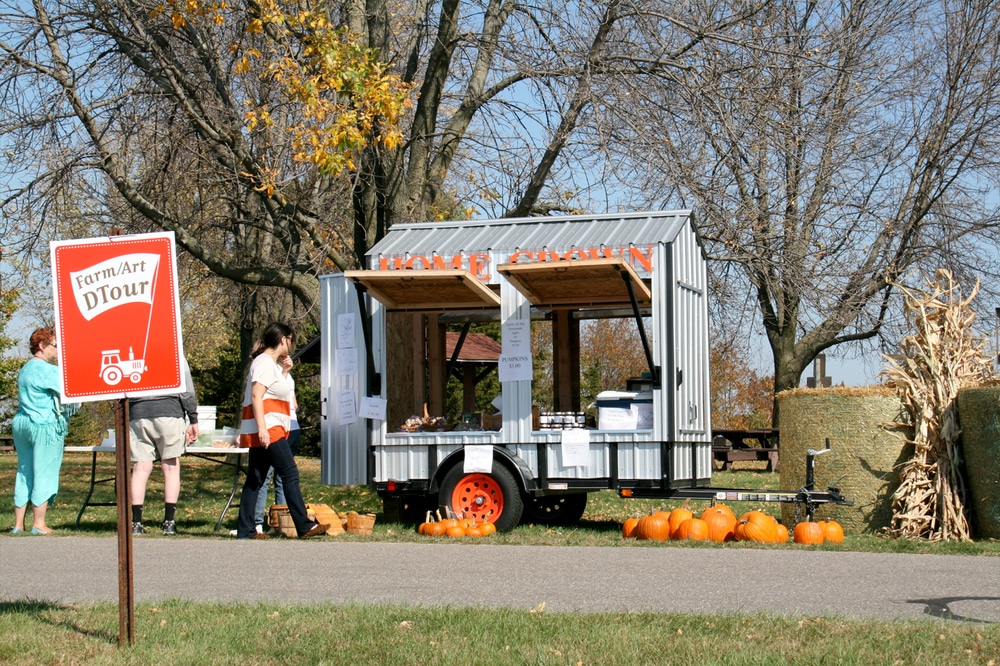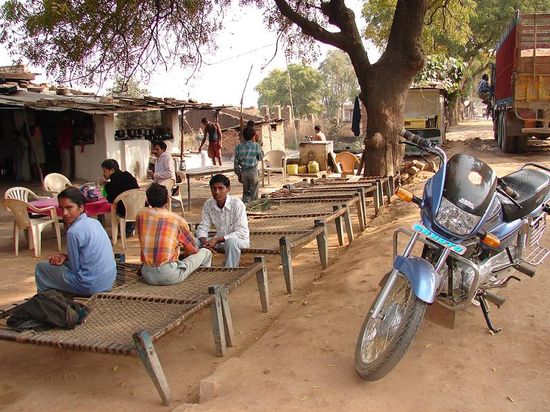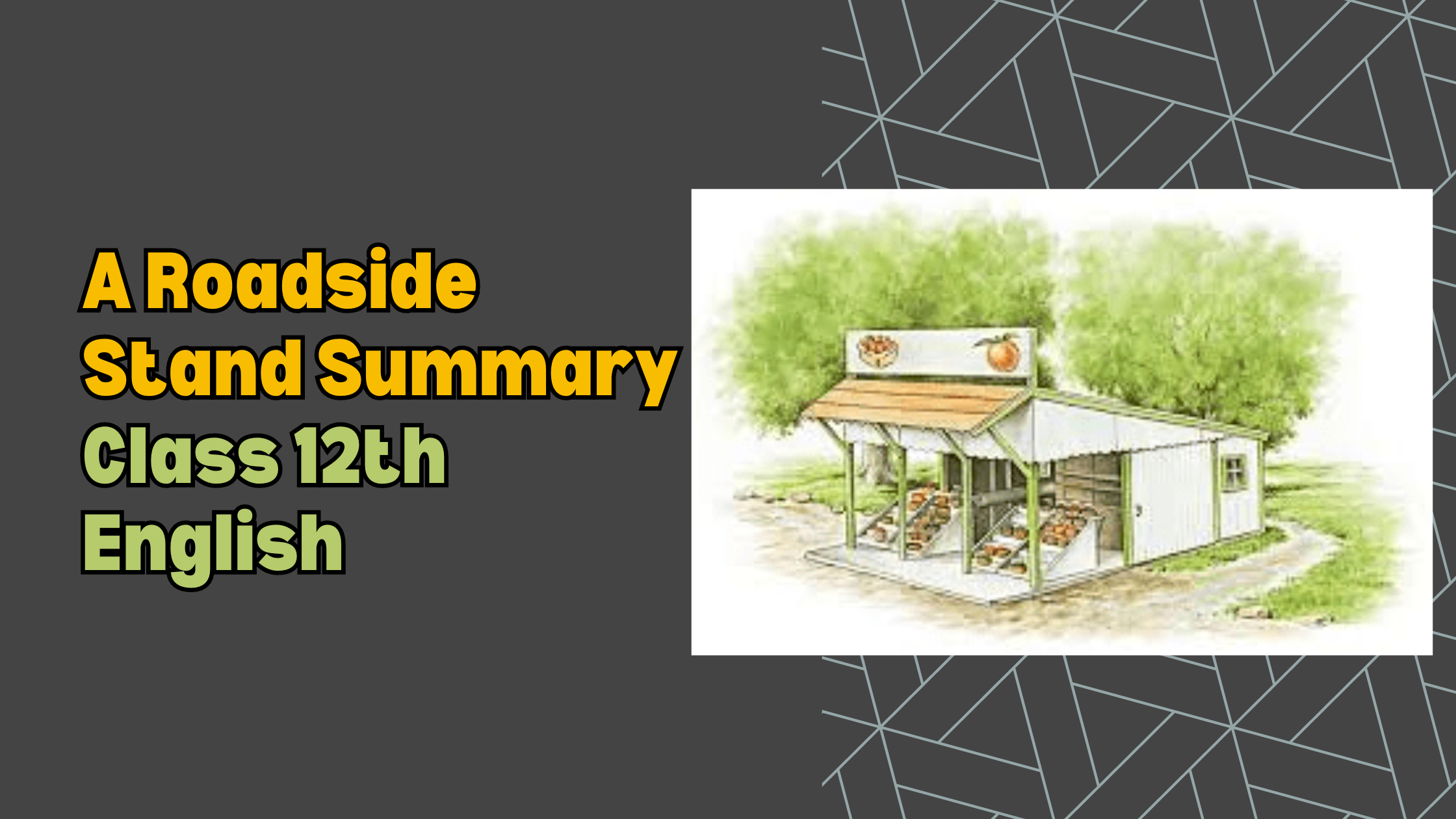The roadside stand is another beautiful piece of poetry by renowned poet Robert Frost. It is an account analyzing the widened gap b between society on the basis of rich and poor. It revolves around the heartbreaking of how the development of cities has caused despair among individuals. The poet’s message is to think about once for the low and helpless people. He draws a complete demarcation between well-off society and the rags.
You can also watch the explanation video on our channel EDUGOGUE for a better explanation of the poem.
https://youtu.be/bNxojl1flYU
About the poet: A Roadside Stand
Robert lee frost (1874-1963) is an American poet, born in the USA. He was considered “the voice of America”. His poems bring delight and even focus on wisdom.
He himself was in a state of dilemma as to which path to follow. In the end, he made a choice by following the less traveled one and kept the other road for someday.
It seems he wants to express doubt while making revolutionary decisions. He believes a small indomitable step will make a great difference.

Main theme: A Roadside Stand
The summary of the poem roadside stand deals with the struggling and vulnerable lives of countryside people and how the city dwellers don’t even pay any heed to their hapless conditions.
Further, the city dwellers don’t think about the struggles they face while selling their goods. Robert frost shows a sympathetic attitude towards these impoverished masses and feels compassion for them.
Poem’s analysis: A Roadside Stand
Stanza 1
The little old house………..with a mind ahead
There has been an extension of the shed and someone from the village folk had a shed that ran to a city nearby. It was a small counter selling small berries or squash to make little money to keep their bread and butter.
Some caravans passed along the highway, but only a few stopped to buy something. Sometimes didn’t even notice them and if by fluke the traffic stop they are much disappointed with unattractive signboards.
According to the poet, this place offers a haven for only those who can afford it, so he advised the traffic to move on.
Meanings
- Sped: the rate at which someone or something moves
- Dole: a charitable gift of food, clothes, or money; buroo.
- Plead: adjure; implore.
- Withering: fading
- Faint: lacking conviction or enthusiasm
Stanza2
Or if ever aside…with silver warts
The traffic belongs to the well-to-do class and expresses their disgust at the display boards. Farmer’s impetrate eyes had little impact on them.
They offer freshly extracted squash and juices to them kept in antique-looking jars, still not entertained by the city folks.
They looked down upon and feel low in buying these goodies from them. It looks like their wealth has, made them blind as they are unable to go down their status to buy such things.
Meanings
- Marred: spoiled
- Quarts: vessel
Stanza3
Or beauty rest…keeping from us.
The ramshackle sack stands appear to be a hurdle against the backdrop of lavish green fields and high mountains.
For the travelers, the shack is like a spoiler and the city dwellers avoid taking a glance at it and making them feel left out.
The humble villagers fight to keep their hardships and they feel if they get enough money they can lead their life according to the appealing to the political parties as they are in favor of the city- dwellers always.
Meanings
- Moving pictures: movies.
Stanza4
It is in the news…the ancient way.
The stanza says that very soon they will be relocated to the nearby cities, near theatres or stores that benefitted from development.
The people who consider them as well-wishers will use them for their own hidden motives and no one bothers to take their consent they do not want to leave their ancestral land to live in urban centers
Their simple and complacent lifestyle will be disturbed in the new place On the other hand, the manipulators will enjoy taking advantage and fulfilling their selfish motives.
Meanings
- Beneficent: charitable or do-gooders.
Stanza 5
Sometimes I feel… where it was bound.
The poet feels frenzied as he is expecting much from the city-folks as he knows that they would never ever keep their promises.
With each car passing hope also passes by as they felt they would buy something but in vain. The city-folk don’t even bother to stop and look at them. They looked down upon as if they all were from a different planet.
Even if by chance a car stops but not to buy something they ask for directions or for filling gas breaking the farmer’s heart and leaving the poet distressed.
Meanings
- Longing: a yearning desire.
- Lurks: hide; loiter; slink
- Squeal: high-pitched cry or noise.
- Plow up: move in a fast and uncontrolled manner
Stanza6
And another to ask gently out of my pain …
The poet has a yearning desire to uplift and works for the betterment of society. He holds a sympathetic attitude toward them.
He wants that them should overcome these factors as soon as possible and imagines how would he react if he could give relief from this kind of hardship. But the poet fears this might be only short-lived relief.
Meanings
- Requisite: imperative; mandatory
- Stroke: moving your hand slowly and gently over something or someone.
Literary devices: A Roadside Stand
TRANSFERRED EPITHET
- Polished traffic
- Selfish cars
PERSONIFICATION
1. A roadside stand that too pathetically pled
METAPHOR
- Trusting Sorrow
OXYMORON & ALLITERATION
- ‘Greedy good-doers and ‘beneficent beasts’ of prey.
NCERT SOLUTIONS For Class 12th A Roadside Stand
Q1. Have you ever stopped at a roadside stand? What have you observed there?
The poet believes that when we encounter a beautiful thing, even for a small moment, the pleasure remains with us forever. It leaves a lasting impression that inspires us to live life with hope and optimism.
Q2. The city folk who drove through the countryside hardly paid any heed to the roadside stand or to the people who ran it. If at all they did, it was to complain. Which lines bring this out? What was their complaint about?
“The polished traffic passed with a mind ahead, Or if ever aside a moment, then out of sorts At having the landscape marred with the artless paint Of signs that with N turned wrong and S turned wrong” According to the city folk, these stalls with inartistic signboards blemish the scenic beauty of the landscape.

Q3. What was the plea of the folk who had put up the roadside stand?
The rural folks pleaded pathetically for some customers to stop by and buy some of their goods. City folks used to pass by on this road and hence the rural folk set up the roadside stand to attract their attention and sell their goods.
Q4.The government and other social service agencies appear to help the poor rural people but actually do them no good. Pick out the words and phrases that the poet uses to show their double standards.
The poet criticizes the double standards of the government and other social service agencies who
promise to improve the standard of living of the poor farmers and show them the rosy side of life. Yet, when the time comes to deliver their promise, they either forget them or fulfill them keeping in view their own benefits. The poet calls them “greedy good-doers” and “beneficent beasts of prey”, who “swarm over their lives”. The poet says that these greedy people make calculated and well-thought-out shrewd moves, to which the innocent, unaware farmers fall prey.
These humble and simple farmers are robbed of their peace of mind by these clever people. The poet says, “…..enforcing benefits That are calculated to soothe them out of their wits, And by teaching them how to sleep they sleep all day, Destroy their sleeping at night the ancient way.”
Q5. What is the ‘childish longing’ that the poet refers to? Why is it ‘vain’?
The poet thinks that the persons who are running the roadside stand, suffer from a childish longing.
They are always expecting customers and waiting for their prospective customers. They keep their windows open to attract them. They become sad when no one turns up. They are always waiting to hear the squeal of brakes, the sound of a stopping car. But all their efforts go in vain.
Q6. Which lines tell us about the insufferable pain that the poet feels at the thought of the plight of the rural poor?
Filled with empathy, the poet is unable to bear the plight of the unassuming and innocent rural people. The lines below show his insufferable pain: “Sometimes I feel myself I can hardly bear The thought of so much childish longing in vain, The sadness that lurks near the open window there, That waits all day in almost open prayer”
Wrap up
The poet feels very disturbed after he came to know their dilemma as to how hard they are earning and they wish for a better life and want to sell their merchandise to the passers-by and city-dwellers.
It shows a great contrast between haves and haves not. He wants us to give them a helping hand to be able to fulfill their yearning for a superior life. The poet also expresses his regret that how city folk is engaged in their own world ignoring the masses.
Related Articles

